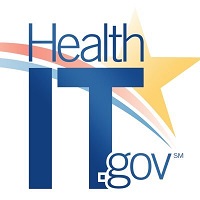 By Allison Dennis, Kevin Chaney and Teresa Zayas Cabán, ONC
By Allison Dennis, Kevin Chaney and Teresa Zayas Cabán, ONC
Twitter: @ONC_HealthIT
Today’s health information ecosystem is broadening in terms of participants and data availability. The data sources that exist to inform clinical and biomedical research are more diverse than ever, drawing from electronic health records (EHRs), genomic tests, recordings from wearable devices, and patient surveys, to name a few. The insights that can be drawn from these require effective data collection, aggregation, and sharing in addition to health IT infrastructure capable of supporting research goals. To address some of these requirements, ONC has been focused on accelerating an ecosystem that uses standardized, application programming interfaces (APIs).
Researcher Perspectives on API and App Connectivity
The Researcher Perspectives on APIs report [PDF – 486 KB] is the second of four “Accelerating APIs” reports that explore the current landscape of API-based health information exchange in a rapidly evolving electronic health data ecosystem. Understanding researchers’ perspectives is crucial for greater adoption and scientific advancement through the use of standardized APIs, specifically Health Level Seven International (HL7®) Fast Healthcare in Interoperability Resources (FHIR®)-based APIs, for research.
To better understand the current state of the API ecosystem and researchers’ ability to leverage standardized APIs, ONC conducted discussions with nine organizations involved in clinical, informatics, biomedical, and pharmacological research in varying roles. Discussions focused on the use of standardized and non-standardized APIs and apps; successes, challenges, and barriers; and opportunities for greater use of API and apps for research purposes. In our conversations, we aimed to understand:
- How standard APIs support the data needs of researchers
- How data from health IT systems are leveraged for research purposes
- Methods used to obtain electronic health data for research
- Opportunities for accelerating patient-directed sharing of data for research
- Current use cases for FHIR-based and FHIR Bulk Data Access APIs
- Privacy and security concerns
Our conversations helped establish a baseline of activity and current successes of using APIs for research and highlighted the remaining challenges and opportunities for making standardized APIs and apps work for scientific discovery. The report highlights various examples of where APIs and apps are beginning to emerge to meet the needs of the research community. For example, the Research Electronic Data Capture data exchange platform, which is used by nearly 5,000 institutions to manage research data, is now supporting the use of FHIR to facilitate the collection of data from electronic health records. This is part of the effort to leverage standardized APIs such as the FHIR Bulk Data Access API for clinical and biomedical informatics research, especially to conduct large scale studies, with data sets from multiple sites and data outside the EHR.
As provisions in the Cures Act Final Rule are implemented and researchers become more familiar with the use of standardized APIs, their use in research is expected to expand. However, participants underscored that scientific discovery is fueled by a rich and varied landscape of data sources not yet captured by standardized APIs. To make data more usable for research purposes, there needs to be more standardization and better tools for mapping, configuring, and extracting the data across different systems and organizations. Researchers also need to be made more aware of the value of FHIR and FHIR Bulk Data Access APIs, and additional education efforts are needed so that researchers can consistently utilize the full potential of these APIs.
Learn more about APIs and healthcare research
- Accelerating APIs for Scientific Discovery: ONC homepage for the Accelerating APIs for Scientific Discovery project that includes links to project activities aimed at increasing use of APIs and healthcare apps by consumers, researchers, and providers.
- Sync for Science: Learn more about the Sync for Science pilot that used standards-based APIs to support consumers in sharing their health information within provider electronic health records (EHRs) with the All of Us Research Program.
- API Learning Module: An interactive and video-based training module aimed at providers and consumers with a basic overview of how APIs work and can support access to health information.
This post was originally published on the Health IT Buzz and is syndicated here with permission.
